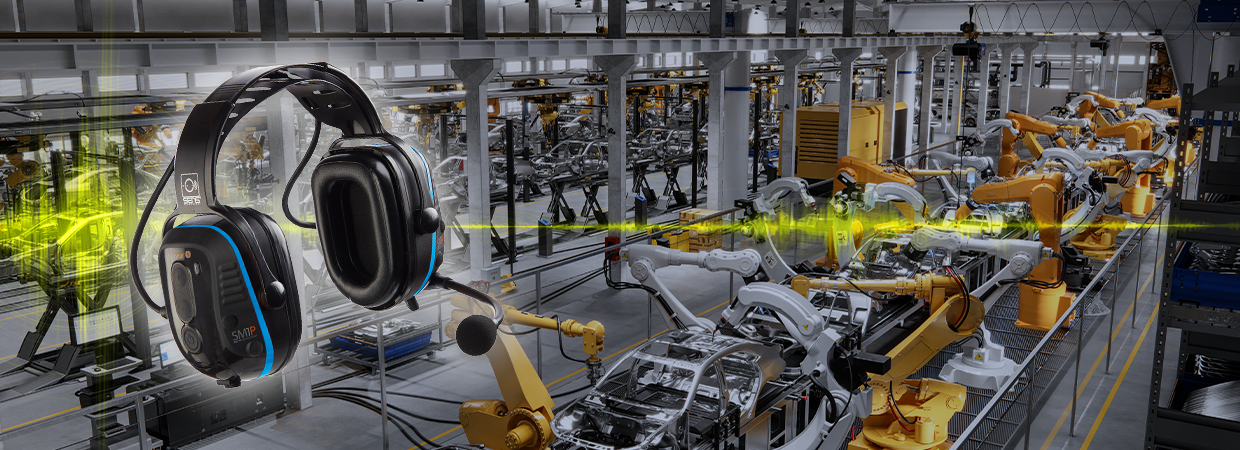- Home
- Blog
- Noise-Induced Hearing Loss
- Top Three Benefits of a Quieter Workplace Environment

Top Three Benefits of a Quieter Workplace Environment
Top%20three%20benefits%20of%20a%20quieter%20workplace%20environment%20(Hero%20Banner).jpg?width=2800&name=(5_2)Top%20three%20benefits%20of%20a%20quieter%20workplace%20environment%20(Hero%20Banner).jpg)
In today’s hectic world of work, it can be difficult to catch a minute of peace. People with labor-intensive jobs that are based outdoors are particularly vulnerable to the detrimental effects of loud noises and often feel the need to escape the sound of heavy machinery. However, manual laborers are not the only workers feeling the effects of excessive noise. With open office plans now the norm in most workplaces, the sounds of chatter and movement that take place every day can have a number of detrimental effects on productivity and employee wellbeing. Managing to achieve a quieter workplace can have positive effects on employees as it can lessen the threat of:
Hearing Loss
Work that takes place in excessively loud environments can have devastating effects if employees are not properly protected. This is because repeated and prolonged exposure to loud noises can damage the delicate structure of the human ear.
The fine hairs on the cochlea, a structure found in the inner ear that converts sound frequencies to nerve impulses, can be easily damaged by very loud noises. This damage can be permanent and workers that are not protected from loud noises are at risk of hearing loss. This kind of hearing damage can limit a person’s ability to engage in conversations or perceive high-frequency noises, and can even result in deafness.
Psychological Damage
It can be easy to overlook the effects of noise on mental health and well-being, particularly as hectic environments are an integral part of manual jobs. However, it is becoming increasingly common knowledge that excessive and prolonged loud noise increases psychological stress and can cause a person to become irritable and withdrawn.
For some people, loud noises have a big impact on their ability to think straight and focus on their given tasks. However, the most common problem with noise when it comes to mental health is its propensity to cause annoyance.
Annoyance can essentially be defined as the negative feelings a person experiences when their activities and thought processes are constantly interrupted. Employees that are annoyed by noise may feel resentful, frustrated, and dissatisfied with their employers. This can have a cumulative effect on the entire team and can even cause psychological distress among colleagues.
Interruptions
Interruptions are now accepted as a simple fact of life in today’s smartphone-obsessed world. This can be a particular problem for people who simply want to get their heads down and complete a job to their own personal high standards.
This is because excessive noise can interrupt a person’s thought processes. This, in turn, can have an impact on how long it takes to complete a job. This negatively affects workplace productivity and can end up causing rifts between employees and managers.
So What Can be Done?
If you work in an environment that is naturally loud such as a building site, wearing equipment that protects your ears is a great way to achieve a sense of peace and calm. Protective earmuffs that offer noise suppression or noise cancellation can help reduce stress levels, improve mental health and, crucially, boost team performance.
Choosing the right industrial headset can be a head-spinning challenge. With so many products on the market claiming to offer so many different benefits, the process can quickly become overwhelming. Use our Hearing Protection Calculator to calculate the sound level at the ear when wearing hearing protection. If your HPDs are not providing the correct level of hearing protection for your workers, choose the right hearing protection and prevent hearing loss. Contact us today for a free consultation to discuss your concerns, or download our Buyer’s Guide to Communication Headsets.








